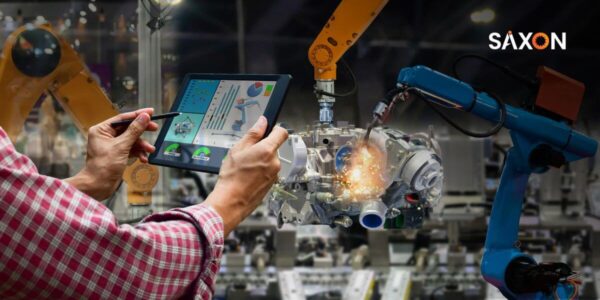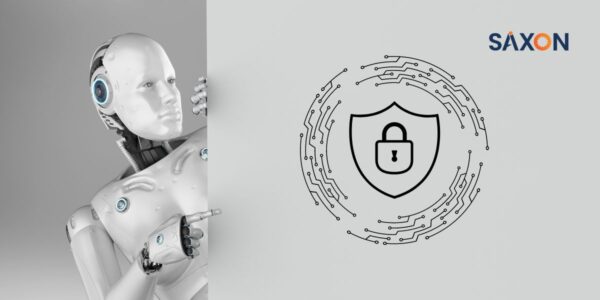As we are approaching 2023, This is the best time to predict the industry AI trends of 2023 and be future-ready to cope up with the trend and demand. McKinsey reports that AI adoption continues to increase and 56% of companies use AI in at least one function, adding that AI has enabled enterprises to increase business efficiency and cut down costs to a greater extent.
Why it is critical to know the upcoming trend? It helps enterprises to analyze and fill in the gaps and brings awareness to the platter of possibilities. Let’s check out the possible AI trends in the major industries that await us in 2023.
Healthcare – Higher diagnostic accuracy
Artificial Intelligence (AI) is revolutionizing healthcare. Reports indicate that healthcare data volumes will increase by 36% annually shortly. With the advent of AI, vast amounts of accumulated medical data have become available for processing and analysis. Furthermore, processing such a large amount of data enables high-quality training data sets, improving AI-based models’ performance.
Chatbots in Telemedicine: Telemedicine is now possible and will continue to reign, thanks to Artificial Intelligence powered chatbots. Reports show that people with personal issues concerning mental health prefer telemedicine because of the comfort it offers. Never before has a patient had so much autonomy in selecting and communicating with healthcare providers with ease.
Drug and vaccine creation with digital twin: With the help of digital twins, AI enables the automation and customization of research and trials in developing drugs and vaccines. AI significantly increases diagnostic accuracy and helps monitor disease progression using Machine Learning (ML), Natural Language Processing (NLP), and Neural Networks. Early detection is critical for diseases such as dementia and cancer to increase the patient’s chances of successful treatment. One such diagnosis is over a call, where Neuropsychological testing is done on phone recordings for early diagnosis, and classification models aid in monitoring changes in the patient’s condition.
Manufacturing – Better quality assurance
The next in the row of AI trends of 2023 is manufacturing. You can expect these trends to bloom in the coming year.
Equipment production: Production automation in the manufacturing industry can autonomously monitor equipment production and ensure high quality. With Artificial intelligence’s object, identification/classification capability on images and videos, quality assurance and inspection systems can become more productive and accurate.
Automated assembling: AI-powered inspection can control the assembling of car components and detect product defects on the conveyor. Further advancements in defect detection in manufacturing enterprises will center on the automation of analysis and decision-making.
Defect detection: Using data from cameras and IoT sensors, AI software can determine the nature of defects in parts or finished products. The evaluation of the criticality of defects and the decision-making process for dealing with the identified defect become automated.
Retail – Workflow automation and demand forecast
Artificial Intelligence strengthens retail by providing future trends and patterns of consumer demand more accurately. ML models play a significant role by changing the game for enterprises to set prerequisites to increase the quality of assortment planning and reliability of delivery. Thus, enhancing enterprises can maintain product stocks in distribution centers and retail outlets at the desired level.
McKinsey reports that companies that have AI-powered supply chains witnessed
- 15% improvement in logistics costs
- 35% increase in inventory levels
- 65% increase in service levels.
Research shows that AI-powered supply chain management enables
- 20-50 % reduction in errors
- 65 % reduction in product shortages and lost sales
- 5-10 % saving in storage costs
- 25-40 % saving in administrative costs
AI-powered autonomous retail stores:
- Retail stores can select the level of AI automation they prefer.
- Cash register automation using computer vision saves time and improves customer satisfaction.
- Autonomous retail stores allow customers to choose their comfortable shopping mode with the convenience of online shopping combining the benefits of the physical store. A complete automated store will be with an automated cash register and vending machines like grad and go
Marketing – Content creation using generative AI
Content and UI are the fastest-growing pieces in MarTech. AI models can better create text, graphics, audio tracks, and images than humans can. This opens opportunities to optimize and modernize the common workflows in marketing for better user experience and engagement.
Modular content:
Modular content will grow. In this approach, the content is personalized for an individual or a specific category of customers. Based on the individual interests of the audience marketers address, the content will have certain blocks where personalization happens.
Fintech – Personalization and fraud detection
The Fintech implements artificial intelligence technologies to ensure
- speed and accuracy of transactions
- prevention of errors and abuses
- security and privacy of customer data
- confidentiality of transactions
Fraud detection:
PwC’s Global Economic Crime and Fraud Survey of 2022 reports that,
- 52% of companies with over $10 billion in revenue have been the target of fraudulent activities in the past two years.
Common types of fraud with
- 44% customer fraud
- 38% cybercrime
- 29% customer identification failure
Artificial Intelligence driven customer identification processes can gather better information about identity, customer suitability, and associated risks. Machine Learning (ML) models can quickly discover suspicious transactions and other online fraud. Timely detection and blocking of fraudulent or unauthorized transactions saves money, improves security, and strengthens the financial organization and client relationship.
Client identification
AI can identify clients via speech, facial recognition, or biometrics. It provides more customizable options for customers to choose from. AI can provide customized reminders and prompts via text and voice. It can also issue personalized offers to customers and increases user engagement.
Chatbot investment advisor – Explainable AI:
AI-powered chatbots can now be your investment advisor. You can customize your experience by providing additional information like the acceptable level of risks, priority markets, and quantitative restrictions. It enables automating investment decisions with your priorities. Explainable AI makes the process transparent, justified, and reliable. Automation of internal work processes is essential to reduce human error or negligence in checking and closing accounts, reconciling electronic documents, processing inquiries, credit risk assessments, etc.
While there are other industries in which AI can do wonders, these AI trends of 2023 will set the platform for more innovations and business opportunities.
How to get started?
Check out our range of solutions. We specialize in building tailored application in a day and chatbot in a week.
Scale up your automation with SAXON today.
















